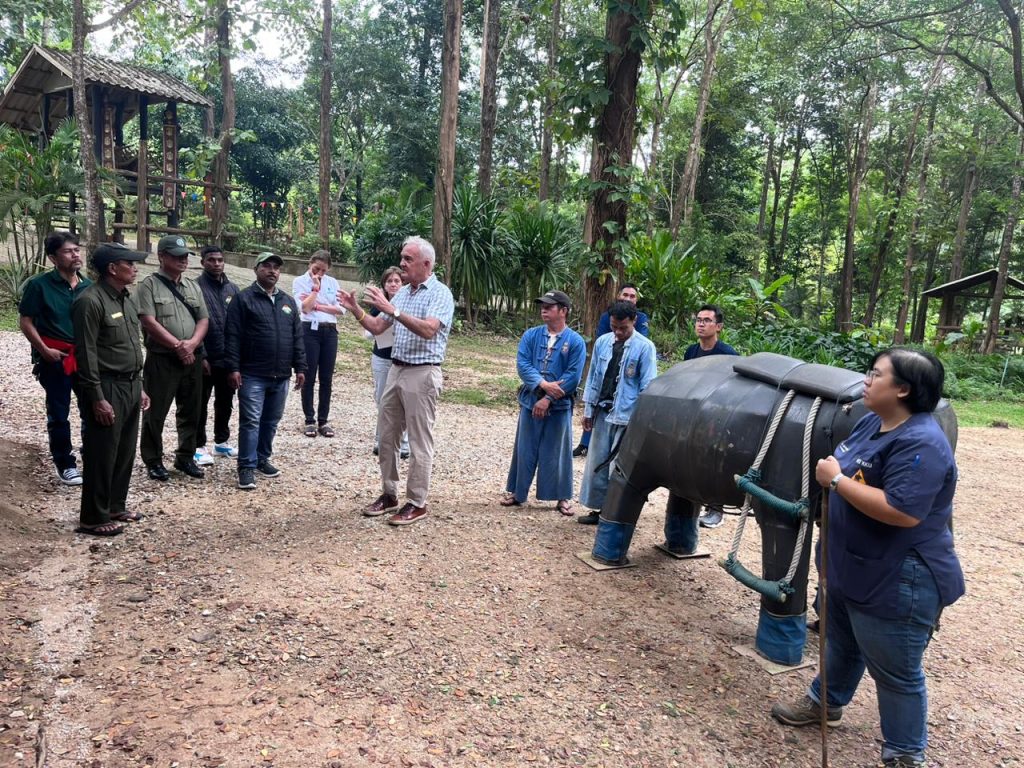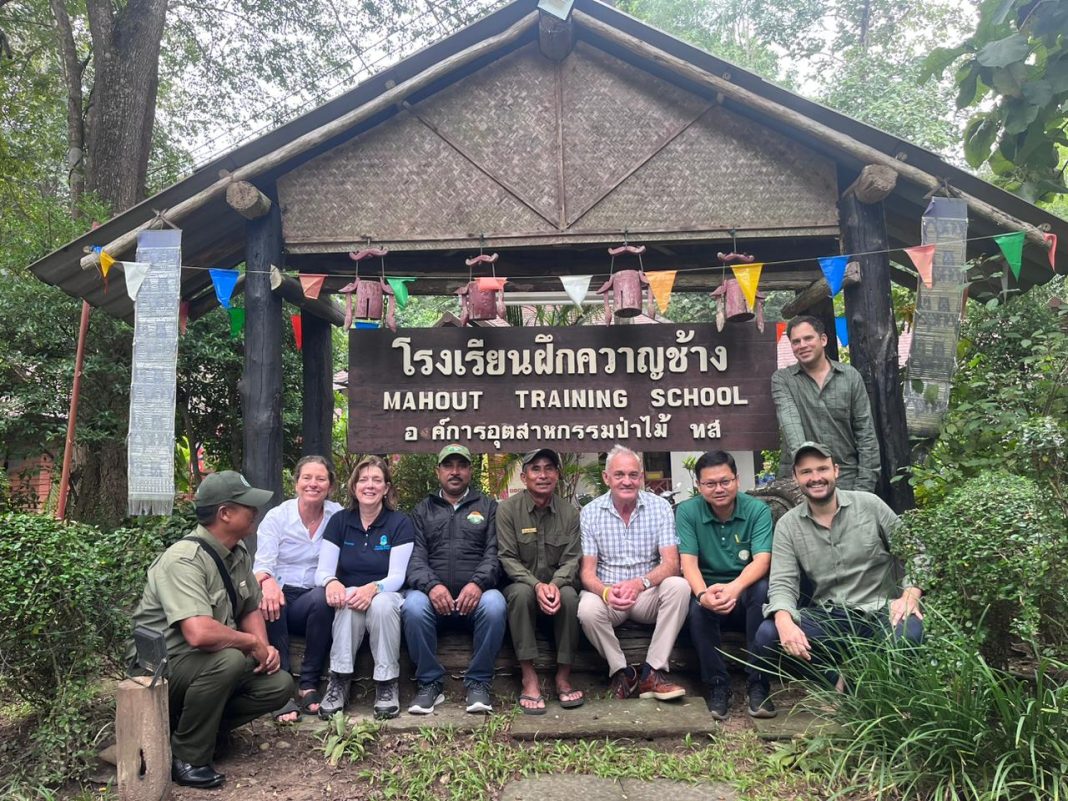Guwahati, Nov 10: In a remarkable achievement for Kaziranga National Park and Tiger Reserve (KNPTR), two mahouts—Kasim Ali from Kaziranga Range and Sanjeev Pegu from Agaratoli Range—were selected to participate in the Gentle Training Workshop at the National Elephant Institute in Lampang,National Elephant Institute in Lampang, Thailand held from November 6 to 8.
This international workshop, organized by the Human-Elephant Learning Programs Foundation (H-ELP), focused on enhancing the welfare of captive elephants by employing scientifically-backed positive reinforcement techniques.
The three-day training emphasized the latest principles for improving elephant handling practices, ensuring mahouts learn methods that promote animal welfare. Expert trainers, including Dr. Andrew McLean and Dr. Portland Jones from H-ELP Foundation, alongside Dr. Bhaskar Choudhury of the Wildlife Trust of India, led the sessions.

Their guidance introduced the mahouts to techniques grounded in empathy and scientific understanding, marking a significant step in advancing humane elephant care in India’s conservation areas.
The workshop introduced a pioneering approach to elephant care through positive reinforcement, contrasting traditional methods that often focus on correcting undesired behaviours. In positive reinforcement, rewards are used to encourage desired behaviours, fostering a learning environment that promotes trust and reduces stress, pain, and fear in elephants.
For elephants, learning begins from birth as they start interacting with their surroundings and caregivers. When positive reinforcement is applied effectively, it greatly enhances the elephant’s learning experience. During the workshop, mahouts from Kaziranga, Nepal, Laos, Thailand, and Sri Lanka observed practical demonstrations of verbal and signal-based training sequences, along with desensitization techniques.
Desensitization helps elephants acclimate to potentially painful or intimidating situations, preparing them for interactions in challenging environments and minimizing fear responses.
The workshop underscored the psychological benefits of reward-based training, encouraging a more humane approach to managing elephants and nurturing stronger, more positive relationships between elephants and their handlers.




